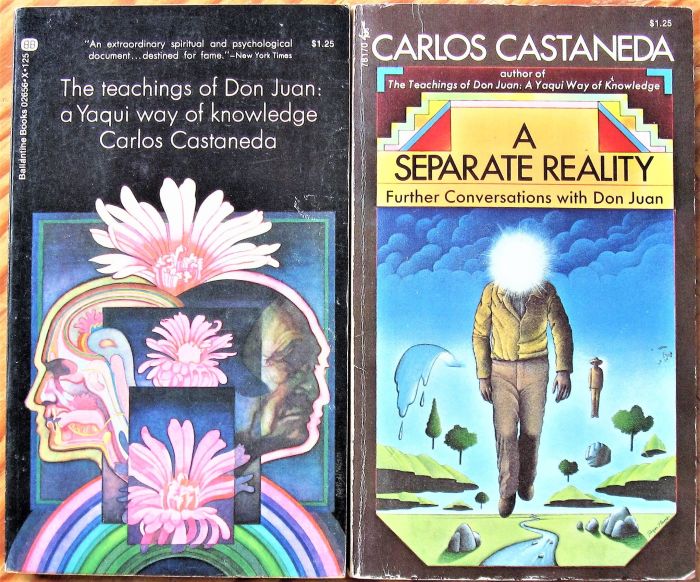Imagine stepping into a world where reality is fluid, dreams are tools, and the power of perception can reshape your existence. That’s the world Carlos Castaneda stumbled upon in “The Teachings of Don Juan: A Yaqui Way of Knowledge.” This book, a wild ride through the teachings of a Yaqui shaman, challenges everything you thought you knew about the world.
Think of it like “The Matrix” meets “The Power of Now” but with a whole lot more peyote and a touch of magic realism.
Don Juan, a master of the unseen, guides Castaneda on a journey of self-discovery, revealing the secrets of a hidden reality. It’s a journey where the mundane becomes extraordinary, and the ordinary transforms into a realm of boundless possibilities. It’s a journey that will leave you questioning everything you thought you knew about life, the universe, and everything.
The Teachings of Don Juan
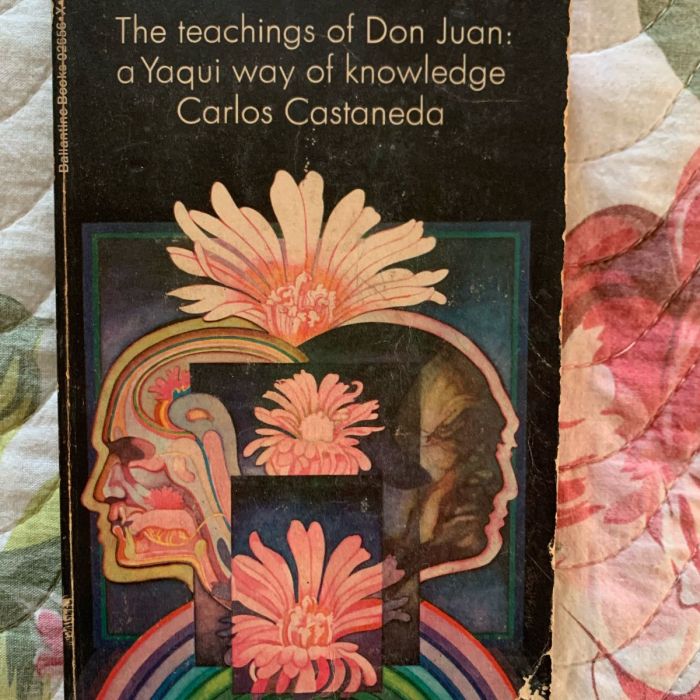
The Teachings of Don Juan: A Yaqui Way of Knowledge is a captivating and thought-provoking book that explores the mystical and spiritual teachings of Don Juan Matus, a Yaqui Indian sorcerer, as recounted by his apprentice, anthropologist Carlos Castaneda. The book, a personal account of Castaneda’s experiences with Don Juan, delves into the nature of perception, reality, and the pursuit of knowledge through a unique lens.
The Relationship Between Carlos Castaneda and Don Juan
The relationship between Carlos Castaneda and Don Juan is the heart of the book. It’s a complex and transformative bond built on a foundation of respect, trust, and a shared desire for knowledge. Don Juan, a seasoned sorcerer, acts as Castaneda’s mentor, guiding him through a rigorous and challenging journey of self-discovery and spiritual awakening.
Castaneda, a dedicated student, absorbs Don Juan’s teachings with an insatiable curiosity and an unwavering commitment to understanding the “Yaqui way of knowledge.”
A Yaqui Way of Knowledge
The “Yaqui way of knowledge” is a profound concept that lies at the core of the book. It represents a system of understanding the world that goes beyond the limitations of traditional Western thought. Don Juan emphasizes the importance of direct experience, personal transformation, and the transcendence of ordinary perception.
He introduces Castaneda to a series of practices and exercises designed to shift his awareness and unlock hidden potential.
“The path of knowledge is a path of awareness, not a path of belief.”
Don Juan Matus
The Teachings of Don Juan
Don Juan’s teachings encompass a wide range of concepts, including:
- The Power of Intent:Don Juan emphasizes the importance of intent as a driving force in shaping reality. He teaches Castaneda that by focusing his intent, he can influence the course of events and manifest his desires.
- The Nature of Perception:Don Juan challenges Castaneda’s conventional understanding of reality, revealing the limitations of human perception. He introduces the concept of “the assemblage point,” a point of energy that governs our perception of the world, and teaches Castaneda techniques for shifting this point to expand his awareness.
- The Role of Energy:Don Juan emphasizes the importance of energy, or “power,” in shaping reality. He teaches Castaneda about the “energy body” and how to harness and manipulate it for personal growth and transformation.
- The Importance of Silence:Don Juan stresses the importance of silence and solitude in the pursuit of knowledge. He teaches Castaneda to cultivate inner stillness and to listen to the subtle whispers of the universe.
- The Journey of the Warrior:Don Juan presents a philosophy of life based on the concept of the “warrior.” He teaches Castaneda to cultivate courage, discipline, and a sense of personal responsibility in the face of life’s challenges.
Key Concepts and Principles
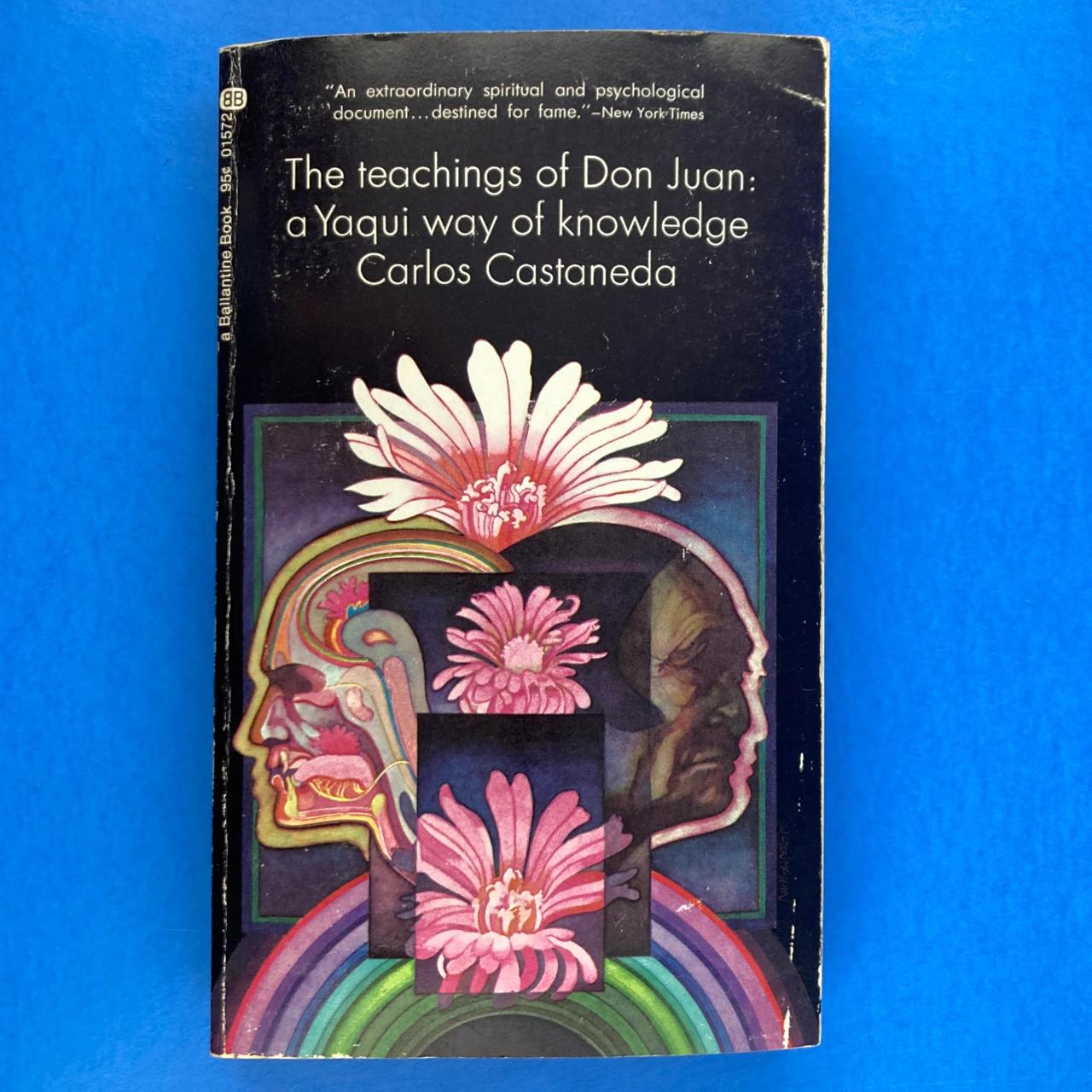
Don Juan’s teachings, as presented in Carlos Castaneda’s books, offer a unique perspective on reality and human consciousness. This section explores the core concepts that underpin Don Juan’s “Yaqui Way of Knowledge,” including the warrior’s way, the assemblage point, and the art of dreaming.
The Warrior’s Way
Don Juan’s teachings center around the concept of the “warrior’s way,” a path of self-discovery and personal growth. This path emphasizes self-awareness, discipline, and the pursuit of knowledge beyond the ordinary. The warrior’s way is not about violence or aggression, but about facing challenges with courage and a sense of purpose.
It is about mastering oneself and one’s perceptions to navigate the complexities of life with awareness and intent.
- Self-Awareness:The warrior’s way begins with the realization that we are not simply the physical bodies we perceive ourselves to be. We are also energy beings, capable of influencing our perceptions and experiences. Don Juan encourages his students to become aware of their internal dialogues, their emotions, and their habitual patterns of thought and behavior.
This self-awareness is the foundation for personal growth and transformation.
- Discipline:The warrior’s way requires discipline and dedication. Don Juan stresses the importance of training the mind and body to achieve mastery over one’s perceptions. This training involves practices such as meditation, controlled breathing, and physical exercises that cultivate focus and awareness.
The warrior’s discipline is not about rigid adherence to rules, but about aligning oneself with a higher purpose and maintaining a constant state of awareness.
- The Pursuit of Knowledge:The warrior’s journey is a continuous quest for knowledge. Don Juan encourages his students to question their assumptions, challenge their beliefs, and seek new ways of understanding the world. This pursuit of knowledge extends beyond the realm of intellectual understanding and encompasses the realm of personal experience and the exploration of non-ordinary realities.
The Assemblage Point
Don Juan’s concept of the “assemblage point” is a crucial element in his teachings. He describes it as a point of energy in our energy body that determines our perception of reality. This point, located near the back of our head, acts as a filter, shaping our awareness and limiting what we can perceive.
“The assemblage point is the focal point of attention, a point in our energy body that determines what we can perceive. It is the point that allows us to perceive the world as we do.”
Don Juan
- Shifting Perception:Don Juan teaches that by shifting the assemblage point, we can expand our awareness and perceive aspects of reality that are normally hidden from us. This shift can be achieved through various techniques, including controlled breathing, altered states of consciousness, and the use of psychoactive plants.
- Non-Ordinary Reality:Shifting the assemblage point allows us to access “non-ordinary reality,” a realm of perception beyond the limitations of our normal senses. This realm is characterized by heightened awareness, altered perceptions of time and space, and the ability to perceive energy fields and other entities.
The Art of Dreaming
Don Juan emphasizes the importance of dreaming in the warrior’s way. He believes that dreaming is not simply a passive experience but an active form of perception. He teaches his students how to control their dreams and use them as a tool for self-exploration and the acquisition of knowledge.
- Lucid Dreaming:Don Juan’s teachings on dreaming focus on the concept of “lucid dreaming,” a state of consciousness in which the dreamer is aware that they are dreaming. This awareness allows the dreamer to control their dream environment, interact with dream characters, and explore different realities.
- Dream Navigation:Don Juan teaches his students techniques for navigating the dream world, such as “intent” and “dreaming with a purpose.” He emphasizes the importance of setting clear intentions before going to sleep and using the dream world as a platform for personal growth and the acquisition of knowledge.
Power and Intent
Don Juan’s teachings place great importance on the concepts of “power” and “intent.” He believes that power is an inherent force within all living beings, and that intent is the key to harnessing and directing this power.
- Personal Power:Don Juan emphasizes the importance of developing personal power, which he defines as the ability to control one’s perceptions, thoughts, and actions. He believes that true power comes from within and is not dependent on external factors.
- The Power of Intent:Don Juan teaches that intent is the driving force behind all actions and that by focusing our intent, we can influence our experiences and achieve our goals. He emphasizes the importance of having a clear purpose and aligning our actions with our intentions.
Non-Ordinary Reality
Don Juan’s teachings suggest that there is a “non-ordinary reality” beyond the limitations of our everyday perceptions. This realm is accessible through altered states of consciousness, such as dreaming and the use of psychoactive plants.
- Beyond the Ordinary:Non-ordinary reality is characterized by heightened awareness, altered perceptions of time and space, and the ability to perceive energy fields and other entities. This realm is not a separate reality but a different way of perceiving the world.
- The Interconnectedness of All Things:Don Juan’s teachings suggest that in non-ordinary reality, all things are interconnected. This interconnectedness extends beyond the physical realm and encompasses the realm of energy and consciousness.
Book Review
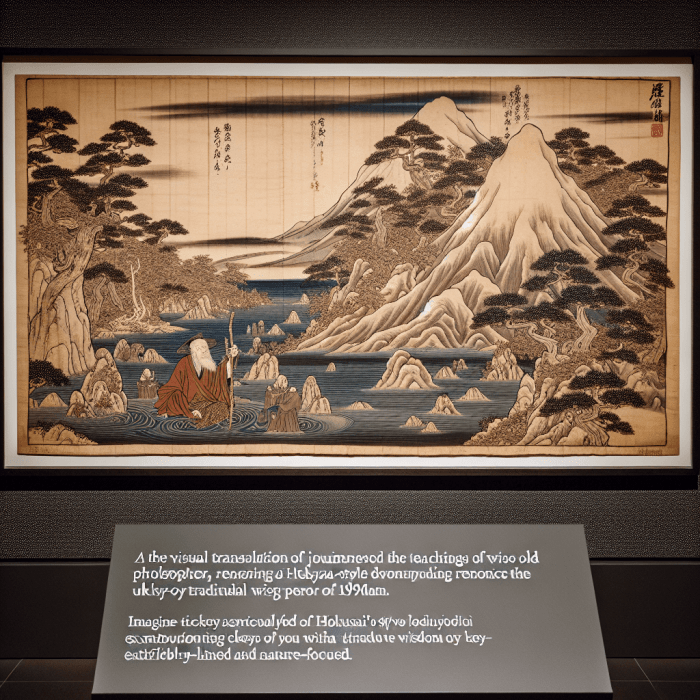
“The Teachings of Don Juan: A Yaqui Way of Knowledge” by Carlos Castaneda is a fascinating and influential book that has captivated readers for decades. It’s a captivating blend of anthropology, mysticism, and personal experience, offering a unique perspective on the nature of reality, consciousness, and the human condition.
Strengths and Weaknesses
Castaneda’s writing is both engaging and thought-provoking. He weaves together his personal experiences with Don Juan, a Yaqui sorcerer, and the teachings he received. The book’s strength lies in its ability to challenge conventional ways of thinking and to present a new and intriguing view of the world.
Castaneda’s vivid descriptions of his encounters with Don Juan and his experiences with altered states of consciousness are both captivating and unsettling. However, the book’s reliance on personal experience and its lack of scientific validation have led to criticism. Some have dismissed it as fiction or a product of Castaneda’s imagination.
While Castaneda’s experiences are undoubtedly subjective, they offer a valuable lens through which to explore the potential of human consciousness and the limits of our understanding.
Comparison with Other Works
“The Teachings of Don Juan” shares similarities with other works exploring altered states of consciousness and mystical experiences, such as “The Tibetan Book of the Dead” and “The Psychedelic Experience.” All three books delve into the nature of reality, the potential of human consciousness, and the search for meaning beyond the limitations of ordinary perception.
However, “The Teachings of Don Juan” stands out for its focus on the practical application of these insights in everyday life, particularly through the concept of “the warrior’s path.”
Impact and Relevance
“The Teachings of Don Juan” has had a lasting impact on readers, inspiring many to explore alternative perspectives on life, consciousness, and the nature of reality. The book’s ideas have influenced various fields, including psychology, anthropology, and spirituality. Its themes of self-discovery, personal growth, and the pursuit of knowledge remain relevant today, as people continue to seek meaning and purpose in an increasingly complex world.
Final Thoughts
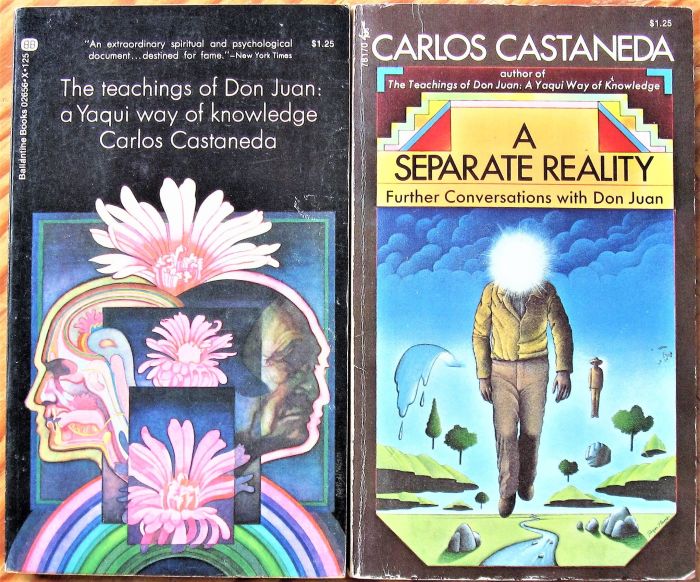
“The Teachings of Don Juan” isn’t just a book; it’s an experience. It’s a call to awaken to the hidden world around us, a world where perception is everything, and the power of intent can change the course of reality.
It’s a book that will stay with you long after you turn the last page, prompting you to look at the world in a whole new light. So, are you ready to unlock the secrets of a Yaqui way of knowledge and see the world with new eyes?
Questions and Answers
What is the “assemblage point” and how does it relate to our perception of reality?
The assemblage point is a key concept in Don Juan’s teachings. It’s a point of energy within our bodies that determines what we perceive as reality. By shifting the assemblage point, we can access different realities and perceptions. It’s like changing the channel on a TV, but instead of changing the program, you’re changing your entire view of the world.
Is the book considered factual or fictional?
The book is a blend of fact and fiction, which has been a subject of debate for years. While some consider it a work of non-fiction, others see it as a fictional exploration of spiritual themes. The book’s power lies in its ability to inspire introspection and open up new possibilities for understanding reality.
What is the “warrior’s way” and how does it apply to everyday life?
The warrior’s way is a path of self-discipline and self-awareness. It involves overcoming fear, facing challenges head-on, and constantly seeking to expand our understanding of the world. It’s about living with intention and purpose, not just drifting through life.
You can apply the warrior’s way in everyday life by taking responsibility for your actions, pursuing your goals with passion, and facing your fears with courage.

